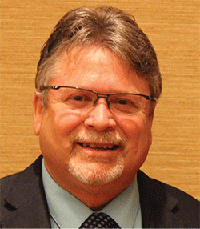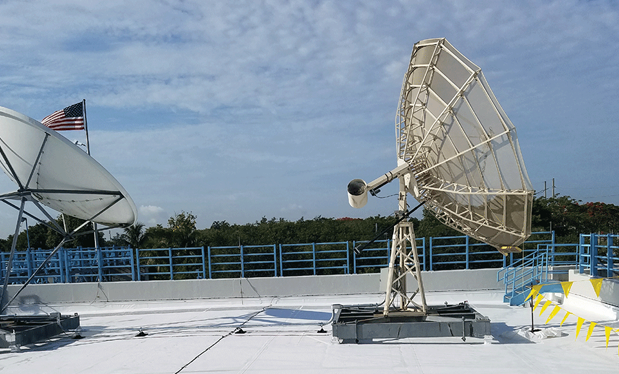ICC welcomes new vice president

Burning |
The International Code Council (ICC) has named Neil Burning vice president of government relations technical resources. Burning is a certified building official with more than 30 years' technical expertise in codes and standards.
In his new position, Burning will develop and direct programs and resources that support the adoption of the International Codes (I-Codes), the most widely used set of building safety codes in the U.S.
"We are excited to welcome Neil to the team," says Dominic Sims, ICC's CEO. "The code council and our membership will greatly benefit from Neil's extensive knowledge of the I-Codes and the industry as we advocate for the adoption of modern, regularly updated and cost-efficient codes and standards in jurisdictions across the U.S."
Burning previously served as vice president of construction, codes and standards for the National Association of Home Builders, where he oversaw the development of the association's advocacy efforts dealing with residential construction codes and standards development, implementation and enforcement.
Solar installer targets low-income households
Rooftop solar company PosiGen LLC, Jefferson, La., is targeting the low-income neighborhoods other solar system installers typically avoid, according to Bloomberg BNA.
Larger solar installers use no money down solar leasing to make rooftop solar more popular but typically focus on consumers with high credit scores and relatively high income.
PosiGen CEO Thomas Neyhart says his company chooses to target people with lower incomes to expand the use of solar power within communities.
"We want the people on disability, the people living paycheck to paycheck," he explains. "They're the ones who can benefit the most from $50 off their monthly utility bill."
PosiGen's strategy does come with a disadvantage. The company sometimes struggles to raise financing because some banks are wary of PosiGen's revenue, which depends on monthly payments from low-income customers. Neyhart says only 47 of his 13,000 homes have defaulted, which is less than 0.4 percent and comparable with companies targeting the higher-income market.
Neyhart now is seeking funding from private equity, family offices and other investors with an interest in solar energy and/or community development.
Despite facing challenges, PosiGen has expanded since it first won 80 percent of Louisiana's rooftop solar market and helped rebuild parts of New Orleans after Hurricane Katrina. The company expanded to Connecticut three years ago and now is expanding in Minnesota and New Jersey. Neyhart says he expects PosiGen to add as many as 3,000 homes during 2018.
Because PosiGen doesn't check credit scores, its target market is left wide open.
The company helps control costs by offering a standardized 6.2-kilowatt installation, flat universal fee of $79.99 per month and simple contract that is easy for customers to understand.
To identify potential customers, PosiGen meets with church groups and neighborhood organizations. A few months after completing an installation, the company helps organize a "Power Party" so customers can discuss their rooftop systems and cost savings with their neighbors. As a result, 40 percent of PosiGen's sales come from its referral program.
After completing PosiGen's expansions in Minnesota and New Jersey, Neyhart hopes to expand the company into two additional states.
ASTM International standard helps classify waste materials
ASTM International's Committee E60 on Sustainability has developed a new standard to help manufacturers classify discarded materials from their factories and facilities. ASTM E2979-18, "Standard Classification for Discarded Materials from Manufacturing Facilities and Associated Support Facilities," also helps manufacturers maintain corporate responsibility and protect the environment.
"This standard provides a system based on classification, location, disposition and treatment," says ASTM International member Amy Costello, a sustainability manager at Armstrong Flooring, Lancaster, Pa. "It will provide manufacturers a common way to classify waste materials generated at their facilities."
According to Costello, many manufacturers—especially global companies and companies with multiple facilities—struggle to determine how much waste their facilities generate because of different waste-related requirements in different locations. ASTM E2979-18 provides a general classification for sustainability accounting purposes and key performance indicators related to discarded materials.



